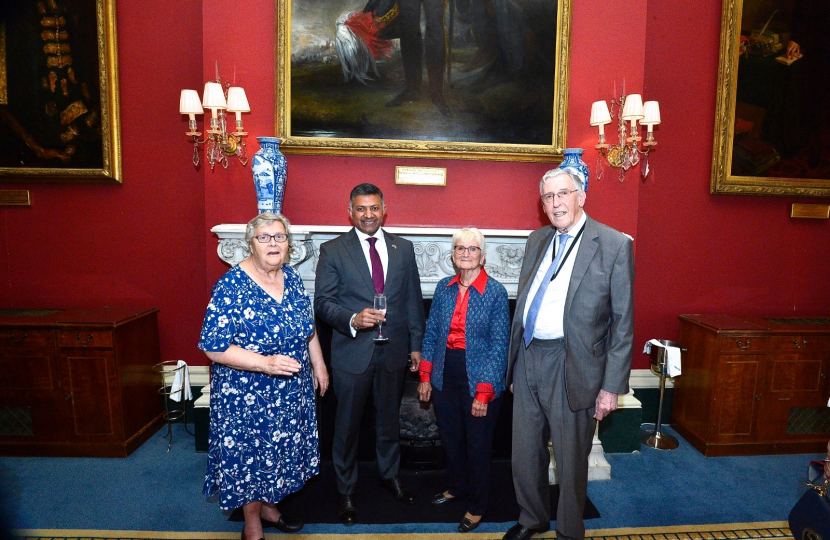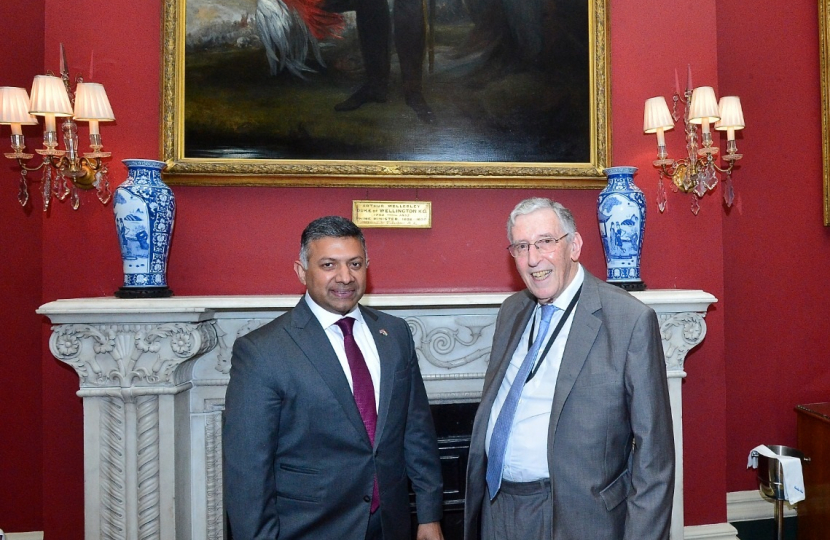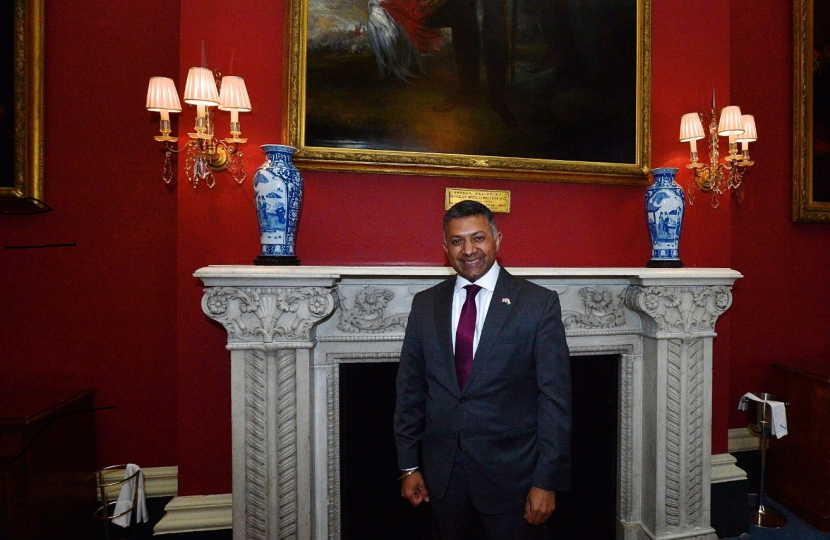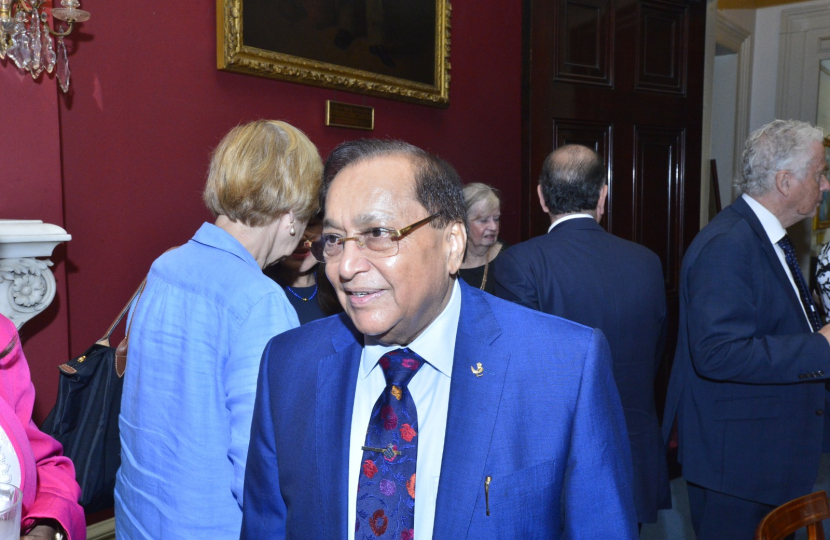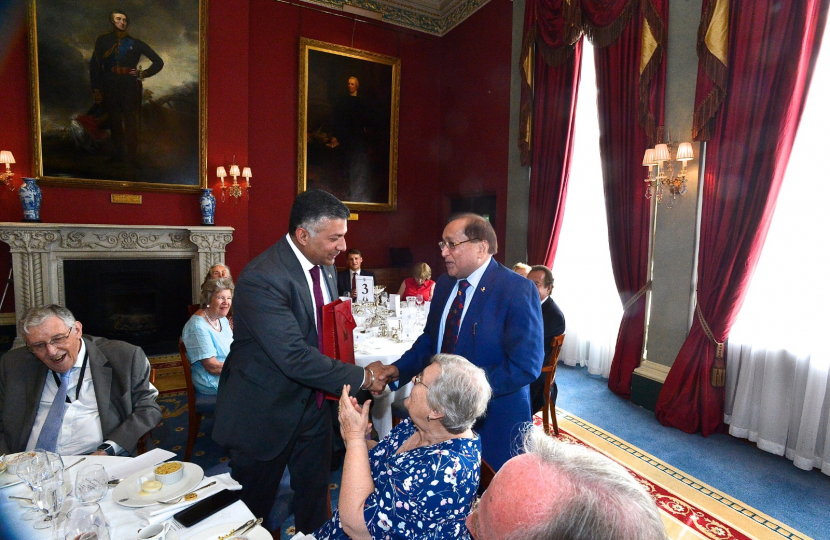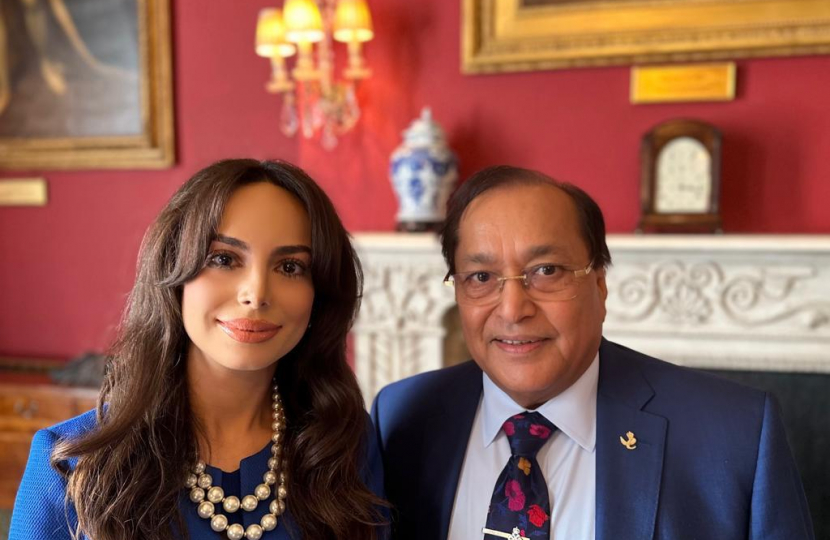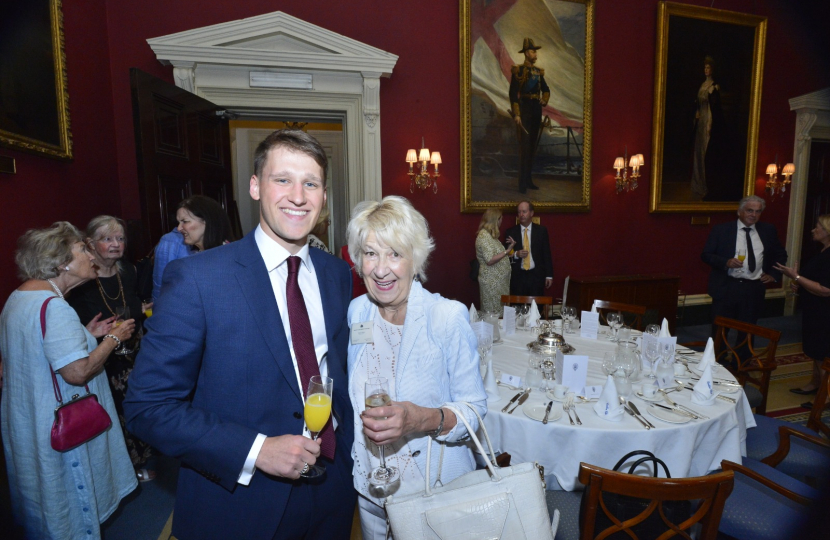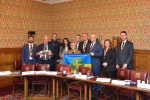Report on Conservative Foreign & Commonwealth Council Lunch at Carlton Club
on Monday 11th September 2023
Guest Speaker: HE Mr Vikram K Doraiswami, High Commissioner of India
The Indian High Commissioner addressed an audience of around sixty Council Members and guests with great charm and persuasiveness. His theme was “India & UK in a new era of geopolitics”.
He argued that several structural changes have been taking place in geopolitics, including greater tendencies for multipolarity, the uncertain role of rising China, the dilution of old alliances, and the emergence of new groupings as countries find common cause on particular issues.
During these uncertain times, respect for the rules-based order and trust among countries were essential for crafting balanced policies by the countries. This approach would ensure that benefits were not concentrated in the hands of only a few but were distributed more equitably within societies and across nations.
The High Commissioner underlined that countries like India and the UK, which depend on stability, have a major role to play in the new world order.
Globalization is the overwhelming reality of our times, the interconnections in the Indo-Pacific being a prime example. However far apart, regions and nations cannot be impervious to significant events elsewhere. The UK has major stakes in Indo-Pacific developments, especially as they pertain to technology, connectivity, trade, and finance. Like India it has a strong interest in the observance of the United Nations Convention on the Law of the Sea, (UNCLOS). Agnosticism on such matters is therefore no longer an option.
The Indo-Pacific is a complex and differentiated landscape that is best understood through more intensive engagement. The more the UK and the Indo-Pacific deal with each other, the stronger will be their respective appreciation of multi-polarity. In such an engagement with the Indo-Pacific, the UK will naturally seek like-minded partners. And India will naturally be to the fore. After all, both are political democracies, market economies and pluralistic societies.
The High Commissioner then turned to Geo-strategic challenges, such as the key challenge today faced by many countries including India and the UK is to navigate geo-strategic competition and power dynamics (whether in the Indo Pacific region, Russia-Ukraine, competition in the Middle East, the Arctic or the South China Sea). Many issues are overshadowed by China’s uncertain role and ambitions on the world stage. There is an overwhelming need to maintain peace through relationships based on trust, through respect for international law, and through mutual interests. India and the UK as natural partners should be a force for reducing the salience of geopolitics, which in turn could reduce the notion of exclusive space.
Cooperation between India and the UK is also vital for tackling non-traditional security challenges such as cybersecurity threats, transnational crime, and pandemics. These are areas where the two countries are already working together. An excellent example of collaboration which has been recently witnessed by the world is the production of Covid-19 vaccines by AstraZeneca and the Serum Institute of India, over 3 billion doses. There is huge potential to strengthen our capabilities to address these challenges, to enhance regional cooperation, and to contribute to collective efforts to tackle common concerns.
The High Commissioner went on to emphasize that geopolitics is increasingly influenced by geo-economics and vice versa. Geopolitical tensions threaten financial stability and weaponize supply chains, adding to the uncertain economic environment. Strengthening trade and investment between like-minded and trusted partners could go a long way towards protecting global public goods and maintaining stability.
He added that we are all aware of the exponential growth of new and emerging technologies, which will in the future continue to shape the political landscape in major and often unforeseen ways. The Indian market and human capital are moulding themselves to this transitional shift. While the UK is one of the leading countries for development of AI, India is now ranked first in the world for AI skill penetration and AI talent concentration, ahead of all other G20 countries, so that cohesive partnerships between various stakeholders in India and the UK could be instrumental in shaping the global governance for critical technologies and for shaping the world order.
Moreover, India and the UK should collaborate to address the challenge of climate change and to promote sustainable development. They should share best practices in renewable energy, environmental conservation, and climate adaptation measures. This would range from joint research and technology transfers to green financing and capacity building.
During a lively and diverse Q & A, the High Commissioner was asked to expand on the possible responses to China’s more aggressive posture as well as its rapid growth. He responded that British companies considering “reshoring” from China, should remember the many advantages that India could offer as an alternative home for Foreign Direct Investment. In passing, he mentioned the active negotiations currently in train for an India-UK Free Trade Agreement. This should further enhance the attractiveness of both India and the UK for investment as well as for trade. The context of UK membership of the Comprehensive and Progressive Agreement for Trans-Pacific Partnership, (CPTPP) was a further step forward.
The High Commissioner was also questioned on issues of human rights and the need for India’s large Muslim minority not to be mistreated or treated as second class citizens. He underlined most strongly that India benefited from its ethnic and religious diversity, where the rights of minority populations were protected under the Constitution.
The lunch ended with a Vote of Thanks by Baroness Chalker of Wallasey and special mention of CFCC’s generous sponsors who had made the event possible, namely Lord Ranger, a Patron of CFCC, Mr Shabbir Khilji and Ms Carole Cohen, CFCC Committee Members, and Mr Ronel Lehmann, a CFCC Member.
Nicolas Maclean

